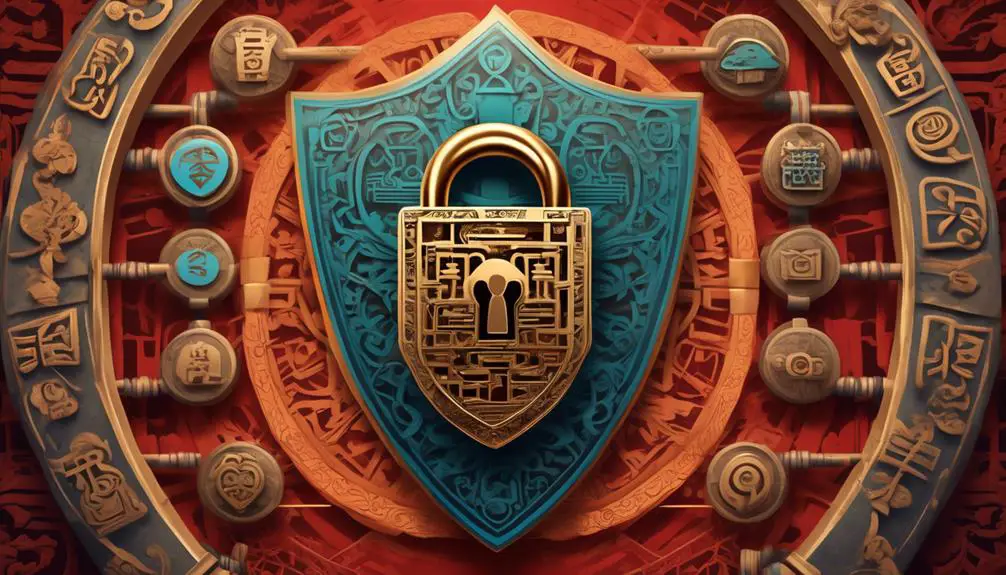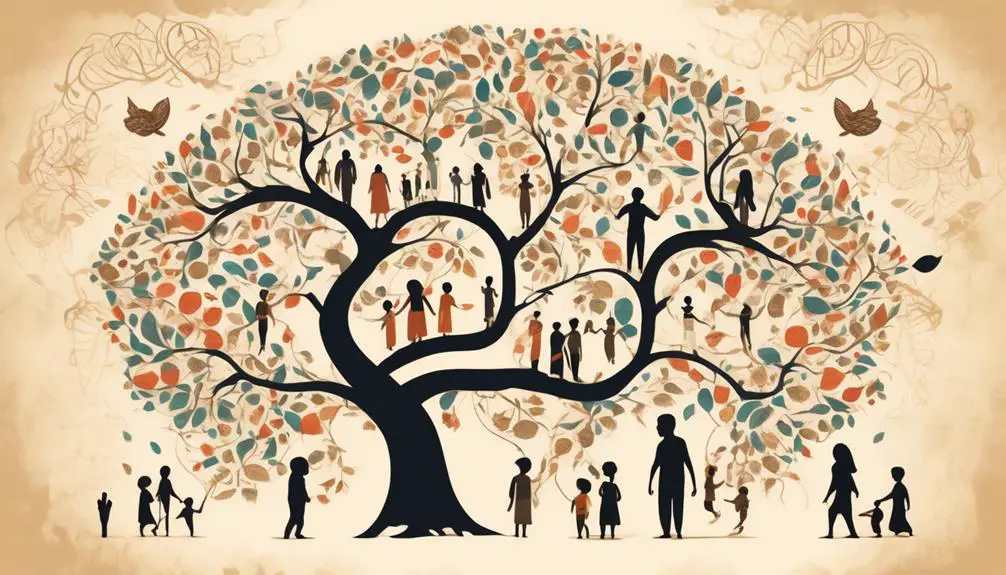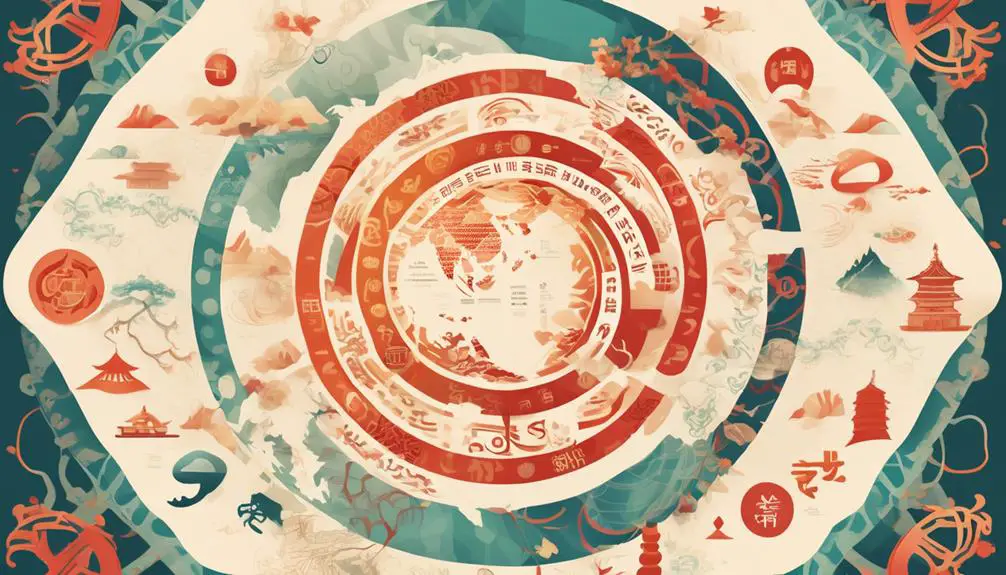As a genealogy expert with a focus on Asian ancestry, my experience has taught me the value of a tailored DNA test.
I believe that our roots profoundly shape our identity, and through the lens of a specialized test, I embarked on a journey that revealed the rich tapestry of my own Asian heritage.
By selecting a test with a sizable database and detailed regional analysis, I uncovered ancestral stories previously untold, granting me a deeper understanding of my place in the intricate web of history and culture that defines us all.
Key Takeaways
- AncestryDNA, 23andMe, Family Tree DNA, Xcode Life, and WeGene are notable DNA test providers for Asian ancestry.
- Thorough DNA tests can provide detailed ancestry breakdowns that pinpoint lineage to specific Asian regions and ethnicities.
- Privacy and data security should be prioritized when choosing a DNA test kit, and it's important to select services that handle genetic information confidentially and have robust measures for DNA data storage.
- Some DNA test kits offer additional health insights specific to Asian population groups, including potential risks for certain conditions, medication response, and tailored lifestyle advice.
Evaluating Top DNA Tests
When choosing a DNA test for Asian ancestry, AncestryDNA stands out as a top choice due to its comprehensive reference panel and targeted samples for Asian populations. It boasts a diverse pool of 68,717 people from 84 regions, including 6,477 samples focused on specificity for Asian ethnic groups. This richness in Asian reference data leads to more accurate ethnicity estimates for your Asian DNA.
While AncestryDNA shines for its Asian heritage depth, don't overlook other kits.
23andMe and Family Tree DNA have made significant strides, offering increased granularity and expanded categories for East, South, and Central Asian populations. With 33 new subcategories, Family Tree DNA provides additional insights into a wide array of Asian populations, catering to those seeking detailed information about their Asian roots.
Comprehensive Ancestry Breakdowns
You'll often find that the most thorough DNA tests provide detailed ancestry breakdowns that pinpoint your lineage to specific Asian regions and ethnicities. With an Asian DNA Test, you can expect to receive ethnicity reports that reflect the rich genetic diversity of Asian ethnic groups. Whether you're of Asian descent or are simply curious about your origins, these DNA test results offer an insightful look into your ancestry breakdowns.
| Test Provider | Reference Populations | Notable Features |
|---|---|---|
| AncestryDNA | 6,477 Asian-specific | 84 regions |
| MyHeritage | Expanded ethnic groups | Subregional focus |
| Family Tree DNA | 33 Asia/Oceania categories | YDNA/mtDNA testing |
| Xcode Life | Focus on Asian ethnicity | Re-analyzed reports |
| WeGene | Strong East Asian database | 500,000 individuals |
Consider the level of detail, the size of the database, and the waiting time for results when choosing a test.
Privacy and Data Security

As you delve into the world of Asian ancestry DNA testing, it's essential to prioritize privacy and ensure your personal data remains protected. When selecting a DNA test kit, like those offered by Family Tree DNA, scrutinize the company's privacy and data security policies. Make sure they handle your genetic information with the utmost confidentiality and have robust measures to secure DNA data storage.
If you're considering an option to upload raw data, be aware of how DNA companies share and utilize genetic data, including its inclusion in Asian genetic reference groups. Opt for services that are transparent about their practices and comply with industry standards to safeguard your genetic information against unauthorized access or misuse.
Additional Health Insights
Exploring the Additional Health Insights offered by some DNA test kits can illuminate your genetic predispositions and guide your personal health strategies. When you're of Asian descent, understanding your unique genetic makeup is crucial. Kits like MyHeritage DNA analyze your DNA sample to reveal specific health traits and genetic markers common within Asian population groups.
These additional health insights go beyond ancestry, delving into genetic traits that may impact your well-being. You'll learn about potential risks for certain conditions, how you might respond to medications, and even receive tailored lifestyle advice.
Connecting With Asian Relatives

Embarking on a journey to discover your Asian ancestry can lead you to connect with previously unknown relatives who share your genetic heritage.
When you take a DNA test, it compares your DNA against genetic reference groups of Asian descent. This not only provides insights into the regions your ancestors likely came from but also can reveal potential matches within the database.
Frequently Asked Questions
Which DNA Test Is More Accurate for Asians?
You'll find AncestryDNA generally more accurate for Asians, thanks to its large sample size, focused Asian haplogroups, and comprehensive reference databases that capture regional specificity and ancestral variations, despite some testing limitations.
Is 23&Me Good for Asians?
You'll find 23&Me offers enhanced Asian representation with expanded reference populations and genetic markers, ensuring regional specificity. Plus, you'll gain health insights, though test limitations and data privacy are considerations to weigh.
Which DNA Company Is Most Accurate for Ethnicity?
You're seeking the most accurate ethnicity estimation; it hinges on genetic markers and the population reference. Consider testing kits with large sample sizes and data on diverse ancestral regions to fuel the accuracy debate.
How Do I Know if I Have Asian Ancestry?
You'll discover if you have Asian ancestry by analyzing your DNA for ancestral markers and genetic traits linked to Asian genetics, revealing your ethnic background, family lineage, and cultural heritage.
Conclusion
You've explored the top DNA tests, analyzed ancestry breakdowns, and considered privacy concerns.
With added health insights, you're set to uncover your Asian roots. Connect with relatives and preserve your family's legacy.
Dive in and embrace your heritage—your journey to the past starts now.

Throughout his career, Andras Kovacs has developed a deep understanding of DNA and its applications in genealogy and genetic testing. He has helped thousands of individuals uncover their ancestral heritage, using cutting-edge DNA analysis to trace family lineages and reveal connections across generations.

